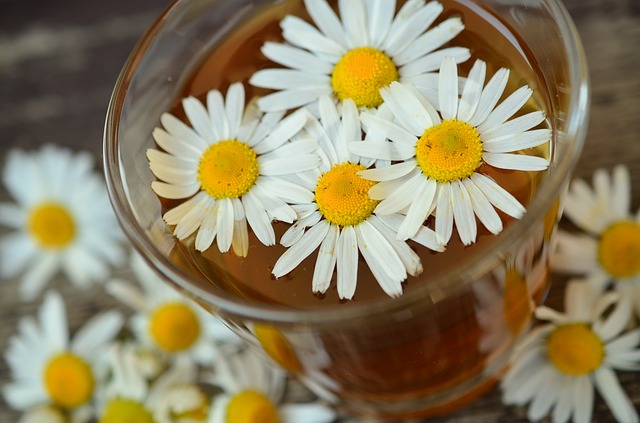If you aren’t getting enough sleep, you aren’t alone. Insomnia is a common complaint in America, where the Centers for Disease Control warn that as many as 1-in-3 adults aren’t getting enough sleep on a day-to-day basis. Let me help you with some natural insomnia remedies.
We’ve talked before about the negative effects loss of sleep can have on your mental health and how making sleep a priority can be the key to a happier, healthier life, but for some people, as much as they want to, they just can’t get their ZZZ’s. There are several reasons why sleeplessness has been on the rise.
What Keeps The Sandman At Bay
Not much has changed in the way the human body wants to sleep over the years, but a lot has changed in human culture. As part of a healthy routine, sleep rests on a tenuous balance with the foods we eat, the work we do, and the activities we use to unwind and rest mentally and physically.
When this balance is disrupted in one or more areas, it can have a dramatic effect on both the quantity and quality of your sleep which, in turn, can impact your health in a variety of ways, including at the genetic level.
There are plenty of ways modern life actively upsets this balance. Our food is loaded with chemicals and antibiotics before being heavily processed and much of its nutritional value stripped away.
Employers, seeking to do more with less, are pushing employees to take on more work. We are incessantly inundated with media and communication from news sources, friends, family, strangers, and bots through computers, televisions, and cell phones. In short, we’ve created the perfect environment for insomnia to thrive.
A More Natural Way To Get Some Sleep
Many people turn to drugs in an attempt to beat insomnia, but prescription medications come with a laundry list of potential side effects. Even those who turn to alcohol to help them sleep run the risk of harming their body, compromising their judgment, and putting themselves or others in a dangerous situation.
That does not mean, however, that there’s no relief to be found. Here are a few tips to help you beat insomnia while sticking to three guiding principles of natural insomnia remedies : Be natural, be healed, and be happy.
- Meditation – With so much stress, sometimes the root cause of our insomnia is an inability for our minds to be still. Meditation helps you quietly focus on letting go of the problems weighing you down. Meditation for stress and depression is an amazing tool.
Focussing on relaxation and sleep as you meditate can help you find the peace you need to get some rest, so you can wake up more refreshed and ready to tackle whatever obstacle is in your path.
- Melatonin – A naturally occurring hormone in the human body, melatonin plays an important part in your normal wake/sleep rhythms.
An increase in your melatonin levels signals the body it is time for sleep, and shift workers have relied on it for years to keep up with schedules that are out-of-sync with the world around them.
While melatonin used to be derived from animal pineal glands, most commercial melatonin supplements are now synthetically produced. All-natural nutritional sources are widely available, too.
Tart cherries, asparagus, tomatoes, corn, olives, grapes, rice, oats, walnuts, peanuts, and flaxseed are all very high in naturally occurring melatonin, making them a good snack to help you wind down for the evening.
- Chamomile – Chamomile has enjoyed a centuries-long reputation as a natural way to calm your body and relax your mind when it’s almost bedtime. Just steep a bag of chamomile tea in hot water for several minutes, then sip gently as you prepare for bed.
- Kratom – There’s a lot of misinformation about Kratom floating around, but for hundreds of years, this evergreen relative of the coffee plant has been an important ethnobotanical throughout Southeast Asia.
Kratom leaves are rich in a pair of active alkaloids that–depending on their concentrations–have shown a huge amount of potential for relaxation, promoting alertness, and easing pain.
- Valerian Root – There’s no mistaking the aroma of valerian, so most people opt for capsules or extracts rather than tea for this traditional herbal insomnia remedy.
Commonly used to calm anxiety, help bunched-up muscles relax, and create a restful mood, it’s understandably popular in many herbal products meant to promote sleep. Whether your trouble sleeping is from your body or mind, these wide-ranging actions make valerian an excellent choice.
- Exercise – Part of maintaining a healthy balance in your life is addressing your body’s physical needs which go beyond food and sleep. Exercise lets your body do what it’s designed to do: work.
You don’t have to kill yourself at the gym or work to exhaustion, but a regular workout regimen can help give your life more structure. Aside from letting your body put in the effort that your office job may not offer, exercise improves digestion and releases endorphins to help you feel happier.
All this can add up to an easier time getting to sleep and a better sleeping experience once you drift off.
- Take A Relaxing Shower Or Bath – Across cultures, water has been reputed to cleanse not just the body, but the mind and soul. For baths, the addition of aromatic fragrances, nourishing oils, and minerals like magnesium sulfate (Epsom salt) can turn it into the perfect way to relax.
Just add them to the bath as it draws, and soak away the day’s stress and aches. For showers, an aromatic sachet or dab of essential oils placed where the steam can help disperse it throughout the room can work just as well.
Take Time To Care For You
Make sure you’re being mindful of your needs and focusing on getting yourself back into balance. Mental health awareness and by addressing the issues that are causing your insomnia, you’re doing more than just catching some shut-eye. You’re leading a happier, healthier life.
You can find much more information on living a holistic lifestyle in these free magazines and on our YouTube channel.
About the Author:

Tess DiNapoli is an artist, freelance writer, and content strategist. She has a passion for yoga and often writes about health and wellness, but also enjoys covering the fashion industry, collaborating with industry insiders and designers, getting insight on the latest trends.







